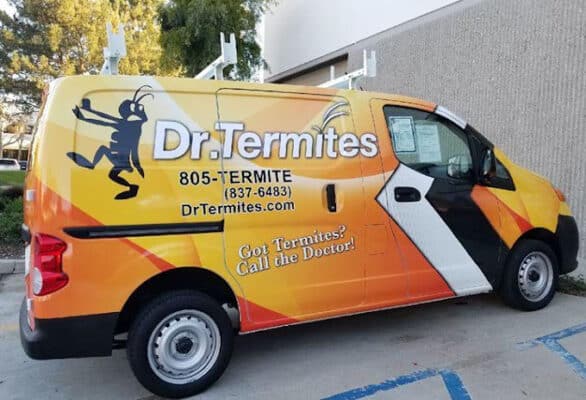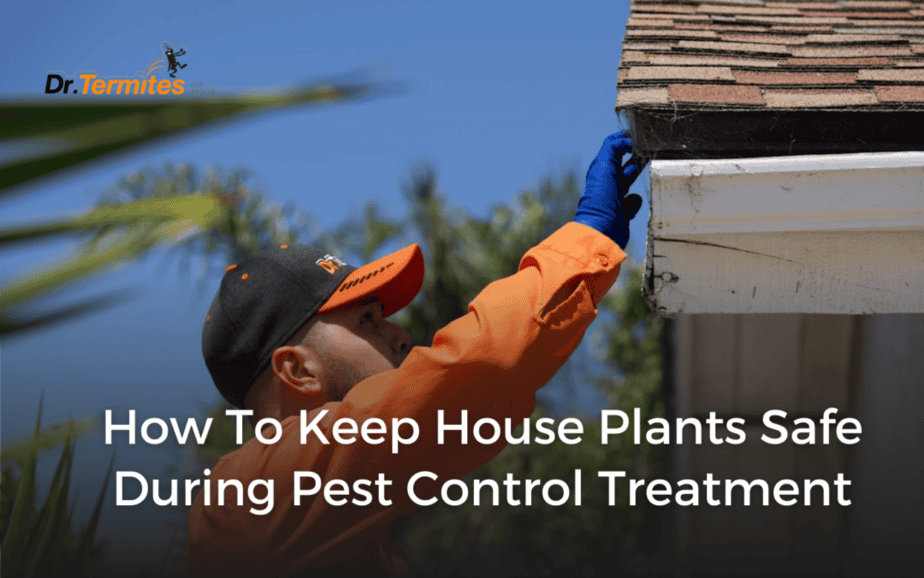Bringing Mother Nature inside our homes can make our living space more comfortable and beautiful. But, greenery isn’t just flowers and plants. Certain types can attract and house ants, spiders, and roaches. These creatures can be potentially harmful to plants, humans, and pets.
The best way to keep our plants and homes safe at the same time is through professional pest control treatment.
Pest control can help in maintaining a healthy and comfortable environment. They’re also safe for plants, humans, and pets when safety protocols are followed. The same experts use EPA-approved products and practice targeted application methods to minimize your exposure and maximize its effect on pests.

Common Misconceptions About Pest Control and House Plants
Many believe that pest control is harmful to the environment and our health. To some extent, it’s true. However, working with a seasoned veteran in the pest control industry eliminates those risks.
Here are more common misconceptions homeowners might have about the effects of pest control on houseplants.
Pest Control Is Harmful to Plants
Pest control companies now use modern products designed to target specific pests. If applied correctly, they’re generally safe for plants.
Pest Control Is Too Harsh for Delicate Houseplants
Depending on the areas affected, professionals can recommend alternative courses of action to protect your plant collection. This may include using a different but more appropriate method or a localized solution.
Plants Die If You Get Pest Control
This is not true! In many cases, keeping pests out of your home can benefit your plants. Eliminating harmful insects that can damage leaves and spread diseases is good for flowers and plants.
How to Protect Your Plants Before Pest Removal
As a homeowner, there are several steps that you can take to prepare your houseplants before the specialists arrive.
This includes:
- Make a detailed list of the types of houseplants inside your home. Let them know about any specific concerns you might have about the procedure and its potential effects on sensitive plants.
- Be open to temporarily relocating sensitive plants to safer areas while they work. In fact, suggest other suitable locations around your home if possible.
- Advise them on proper care of your houseplants during relocation.
- For plants that you can’t move, cover them with a plastic sheet or a loose cloth. Make sure they have proper ventilation. This can minimize their exposure to the chemicals without putting them at risk of bad air circulation.
- Ask pest control professionals when it’s safe to remove the covers on your houseplants, if applicable.
- Depending on the type of houseplant, you may consider watering them more thoroughly a day or two before they are exposed to the product.
- Avoid pruning or repotting your houseplants in the days before or after the scheduled date to minimize stress.
The Unexpected Benefits of Pest Control for Healthy Plants
Believe it or not, pest control is beneficial for houseplants.
These are some of the direct and indirect benefits of a pest-free home for your plant babies:
- Elimination of Plant Pests – Mealybugs, aphids, and spider mites are fatal to plants in cases of severe infestations.
- Improved plant health – By eliminating pests, your plants can focus on growing healthy without disease.
- Long-term plant protection – With proper application, the right chemicals can create a barrier around your home. This protects you, your family, your pets, and even your plants from future pest infestations. This promotes a healthier indoor environment for your entire dwelling.
Work Only With Reputable Pest Companies
When looking for a reputable and licensed contractor, you should prioritize the following considerations:
- Certifications and licensing
- Positive customer reviews
- Use of EPA-approved products
- Proper safety practices
Furthermore, the right partner will have no trouble answering your questions and concerns. If anything, they will encourage you to let them know about your current home situation. This is what allows them to give better recommendations best suited for your houseplants and their needs.
But, as a homeowner, you also have a set of responsibilities. You need to follow all pre-treatment and post-treatment instructions carefully.
By keeping an open and clear line of communication, you can minimize the risk of the procedure on your houseplants.
Conclusion
Your home is a sanctuary. It’s your private abode. It’s where you should be most comfortable. The presence of pests can change this. If you’ve been hesitant about professional pest solutions because of your reservations about their potential dangers to your houseplants, this is your chance to change your mind.
Professional pest control treatment is key to keeping your home safe, healthy, and free from bugs, mites, ticks, fleas, and other unsanitary creatures.
When applied correctly by a licensed pest exterminator, the chemicals used are safe for the environment, your family, pets, and plants while keeping your home pest-free. As an added benefit, keeping unwanted pests away from your house promotes the health and well-being of your houseplants as well.
At Dr. Termites, we understand that your houseplants are part of the family. We will work closely with you to find the safest way to solve your pest problem.































